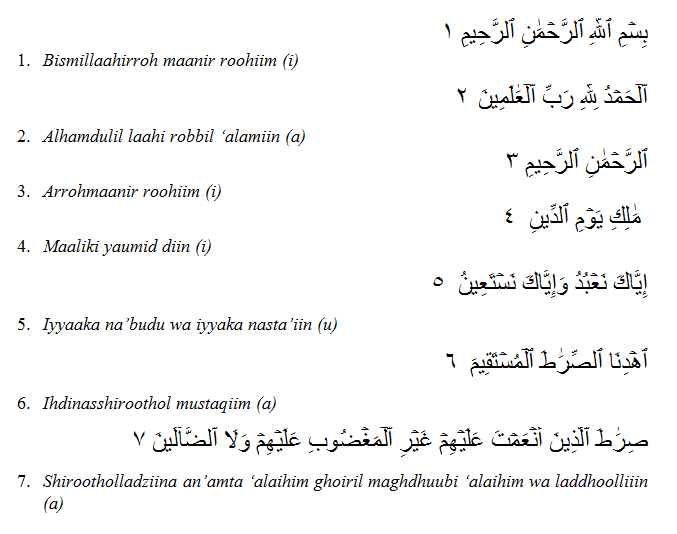Every day, when entering prayer time arrives surely the call to prayer will reverberate. Starting from the call to prayer Fajr, Dzuhur, Asr, Maghrib and Isha, surely everyone will listen to the call to prayer. The call to prayer echoed through a loudspeaker ( loudspeaker ) in mosques and mosque-small mosque nearby.
In addition, the call to prayer is often echoed through various electronic media, such as television or radio and so forth. As children who are just learning, of course we should pay attention and listen to the sound of this call to prayer carefully.
Adzan and Muadzin
Understanding of this call to prayer is a call or notification to many people that prayer time has arrived. In Islam, this adzan has predetermined lafadz.
In view of this adzan the law is a sunnah muakkad , and this is done before performing obligatory prayers, either alone or in congregation. When this adzan appears, a good person will remain silent and listen to him with great service.
The command to recite the call to prayer when entering this prayer time, is listed in a hadith as follows:
عَنْ مَالِكِ بْنِ الحُوَيْرِثِ, قَالَ النَّبِيُّ صَلَّى اللهُ عَلَيْهِ وَسَلَّمَ: “..
Meaning:
From Malik bin Huwayrits, (he said), the Prophet saw. has said: “…. And when the time of prayer arrives (come), one of you should hasten to make adzan. (HR. The Seven Hadiths)
The name of the person who calls adzan is called muadzin. A muadzin at least knows about his job in regard to adzan. As it relates to tone and sound, it would be nice if this muadzin could set the tone and rhythm of the adzan.
This is so that the worshipers who listen to this call to prayer can pay attention, listen to the lafadz adzan carefully, so they can answer the lafadz call to prayer echoed by the muezzin, and prepare to come to the mosque.
A muadzin, should look at adzan by standing and facing the Qiblah. When listening to adzan we should hurry to do ablution and rush to the mosque.
Adzan’s reading
A muezzin certainly must know in advance lafadz – lafadz what will be echoed. A muezzin could be a child, or a teenager, or a parent who does have an obligation to call to prayer in a mosque.
Therefore, all must know what lafadz – lafadz that was raised when the call to prayer. The following are the lafadz that were read when the call to prayer:
٢ᵡ Allahu Akbar, Allahu Akbar
Allaahu Akbar, Allaahu Akbar 2x
(Almighty Allah)
2 I bear witness that there is no god but God
Asyhadu anlaaa ilaaha illallaah 2x
(I bear witness that there is no god but Allah)
٢x اْشْهَدُ انَ مُحَمَّدًا رَسُوْلُ اللهِ
Asyhadu anna Muhammadar Rasuulullaah 2x
(I testify that Muhammad truly is the Messenger of Allah)
٢x حَيَّ عَلَى الصَّلاَةِ, حَيَّ عَلَى الصَّلاَةِ
Hayya ‘alas shalaah 2x
(Let’s do the prayer)
٢x حَيَّ عَلَى الْفَلاَحِ, حَيَّ عَلَى الْفَلاَحِ
Hayya ‘alal falaah 2x
(Let’s head to victory)
Allahu Akbar, Allahu Akbar
Allaahu Akbar, Allaahu Akbar
(Almighty Allah)
No God except Allah
Laa ilaaha illallaah
(There is no God but Allah)
Additional notes
Although this call to prayer is echoed as a sign that prayer time has arrived, but please note, for the dawn call to prayer, after reading the lafadz “Hayya ‘alal falaah”, there are additional lafadz that need to be added mu’azin, namely the following lafadz:
٢x اَلصَّلاَةُ خَيْرٌ مِنَ النَّوْمِ
As-shalaatu khairum minan nauum 2 x
(Prayer is better than sleep.)
In addition, when saying lafadz hayya the shalaah mat is shunned to turn to the right, then when saying lafadz hayya ‘alal falaah turns to the left. After listening to this lafadz answer with reading laa haula wa laa quwwata illa billaah (i) (there is no power and strength except with the permission of Allah swt.)
Iqamah and Iqamah Reading
This is a notice to the prayer pilgrims who have come to the mosque or mushalla, or other place of prayer to hasten to get up from their seats and to stand ready to perform their prayers.
The reading of this iqamah is very similar to the reading of adzan, the difference of lafadz which was made when iqamah is enough only once. Also after saying the lafadz “ Hayya ‘alala shalaah ” and “ hayya‘ alal falaah ”, it is supplemented with lafadz قَدْ قَامَتِ الصَّلاَةُ (Qad qaamatis prayer / prayer immediately established)
To clarify, here is the lafadz mentioned during the iqamah:
Allahu Akbar, Allahu Akbar
َََََََُُُُُُُُُُُُُُُُ-ُُُُُُُُُُُُُُ
اَشْهَدُ انَ مُحَمَّدًا رَسُوْلُ اللهِ
حَةِيَّ عَلَى الصَّلاَةِ
حِيَّ عَلَى الْفَلاَحِ
َ قَدْ قَامَتِ الصَّلاَة
٢X َلله اَكْبْر
لا .لَهَ الله
Such is the explanation of adzan and iqamah that is practiced daily when the time of prayer arrives. We hope that by explaining adzan and iqamah in Arabic and Latin and the translation above can make it easy to memorize and practice.
<!–
–>
